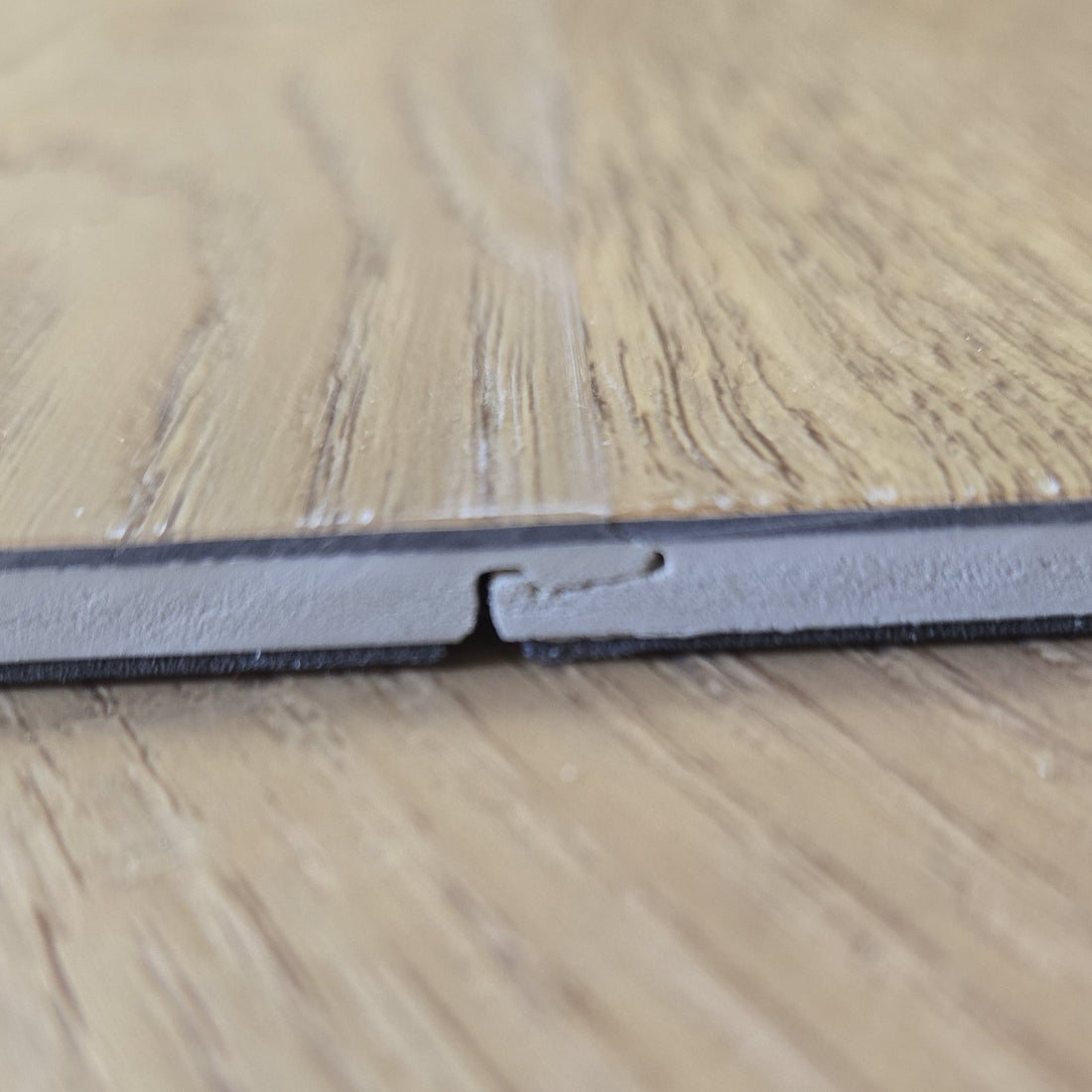
The Truth About Rigid Core Vinyl Flooring: Why Thickness Matters More Than You Think
Share
When searching for rigid core vinyl flooring, most homeowners prioritize aesthetic appeal—but thickness and construction quality play a crucial role in durability, stability, and performance. However, not all flooring thicknesses are the same. Some manufacturers use misleading marketing tactics by including the underlayment in the total thickness, making their product seem more durable than it truly is. Here’s what you need to know to make an informed decision when buying rigid core vinyl flooring.
1. Why Overall Thickness Isn't the Whole Story
Many brands advertise their flooring as 5mm thick, but when you look at the details, you may find:
Core Thickness = 3.5mm
Padding (Underlayment) = 1.5mm
Total Advertised Thickness = 5mm
While a thicker plank may sound appealing, the core thickness is what truly affects the strength, durability, and stability of your flooring. If the core is too thin, the locking mechanism is weaker, increasing the chances of gapping, separating, or breaking under pressure.
✅ Always verify core thickness separately from total thickness to ensure durability!
2. Why Core Thickness Matters More Than Total Thickness
A durable rigid vinyl floor starts with a strong core. Here’s why core thickness is more critical than just the overall measurement:
✔ Enhanced Locking System – A thicker core (5mm+) ensures a stronger click-lock mechanism, minimizing the risk of breakage.
✔ Improved Stability – A thin core (under 4.5mm) is more likely to flex, leading to gaps, separations, or broken locking tabs.
✔ Better Coverage for Subfloor Imperfections – A thicker core hides minor subfloor flaws and provides a smoother finish.
✔ Superior Sound Absorption & Comfort – A thicker core reduces noise and provides a more solid underfoot feel.
3. The Risk of Thin Flooring (Under 5mm Core)
🚨 If the core is too thin, you may encounter:
Weakened locking mechanisms that break due to movement or uneven surfaces.
Excessive flexing under heavy furniture or foot traffic.
Higher risk of gapping and shifting over time.
Challenges with installation, particularly for floating floors.
For installations over an uneven subfloor, choosing a thicker plank (5mm+ core thickness) ensures better long-term performance and durability.
4. How to Avoid Being Misled by Advertised Thickness
✅ Examine product specifications carefully – Always check for core thickness separately from total thickness.
✅ Ask manufacturers or retailers – Confirm that the core is at least 5mm thick before purchasing.
✅ Choose a well-known brand – Trustworthy brands provide clear specifications without deceptive marketing.
Final Thoughts: Invest in Flooring That Lasts
When choosing rigid core vinyl flooring, don’t be misled by marketing strategies that emphasize total thickness, including padding. Instead, focus on core thickness to ensure your flooring is strong, stable, and built to last.
Need help selecting the best rigid core vinyl flooring for your home or business? Visit LVTflooringStore.com